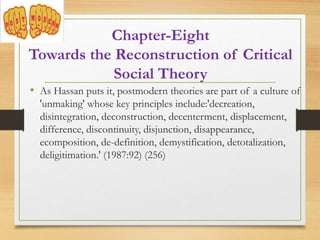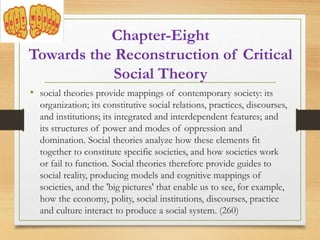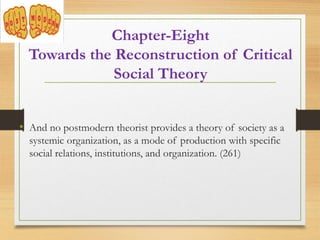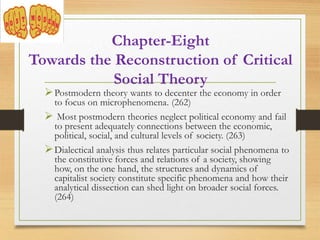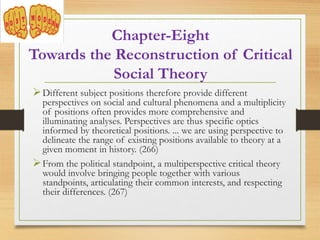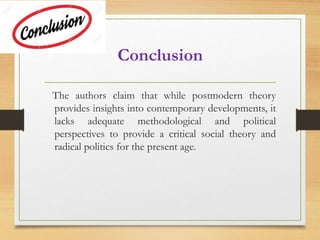This document provides a summary of the book "Postmodern Theory: Critical Interrogations" by Steven Best and Douglas Kellner. The book systematically analyzes postmodern theory and evaluates its relevance for critical social theory. It provides an introduction and critique of theorists like Foucault, Deleuze and Guattari, Baudrillard, and Lyotard. It also discusses postmodern feminist theory and the politics of identity. While postmodern theory provides insights, the authors argue it lacks adequate methodological and political perspectives for a critical social theory or radical politics. The document examines chapters on these various postmodern thinkers and their critiques of and departures from modernism.
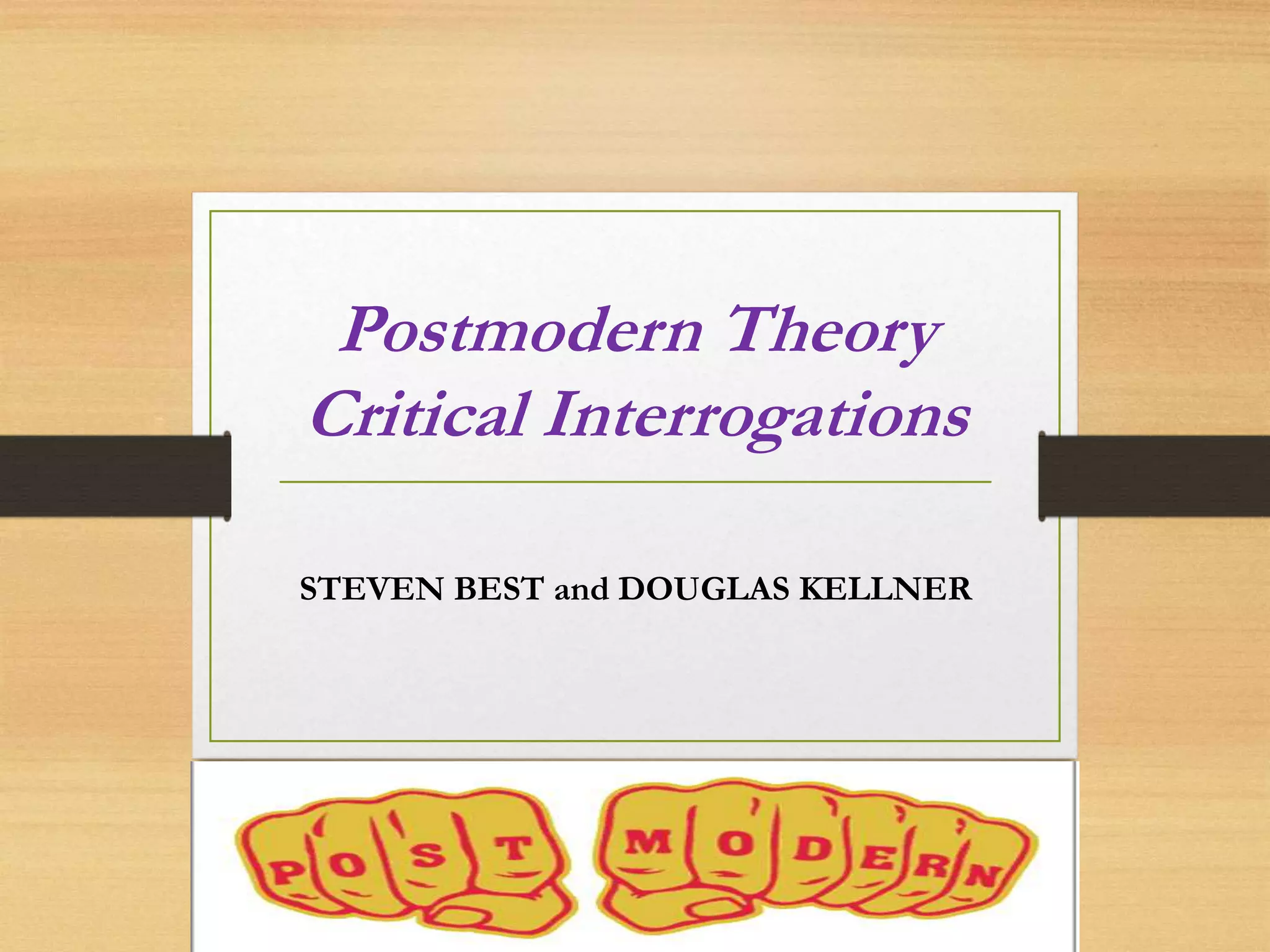
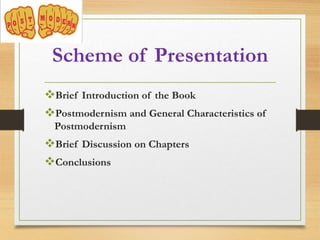
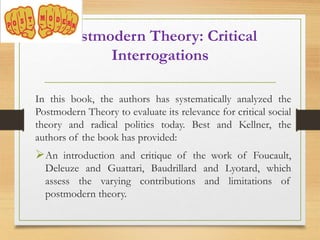
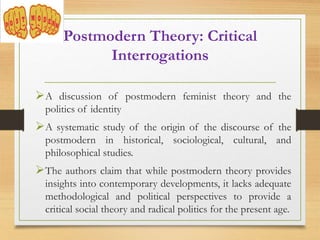
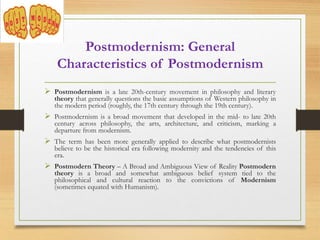
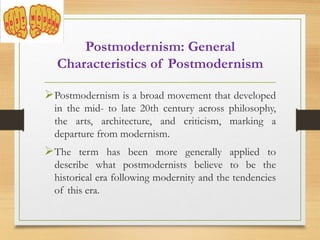
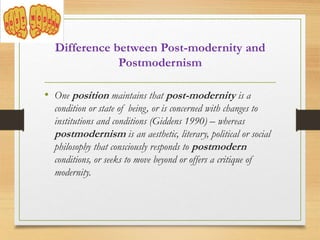
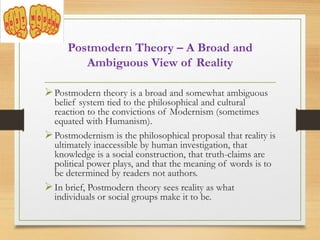
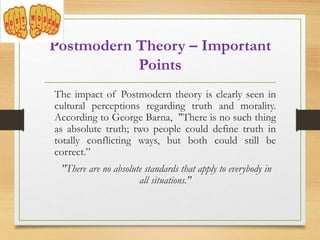
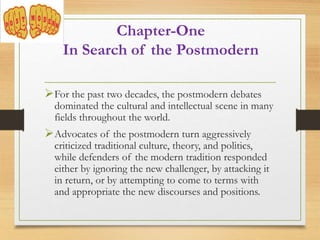
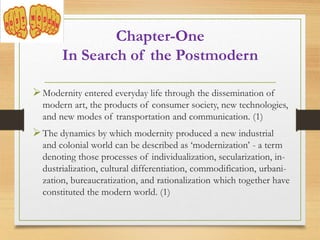
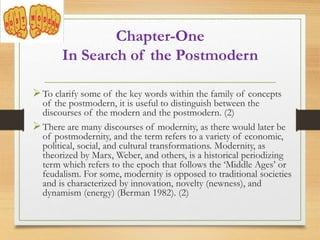
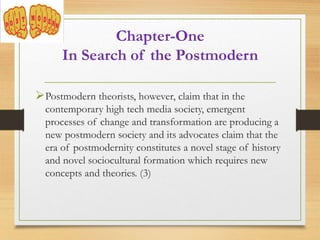
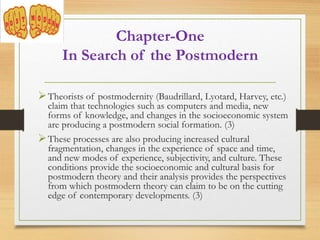
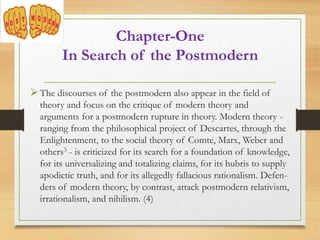
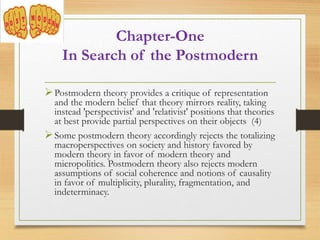
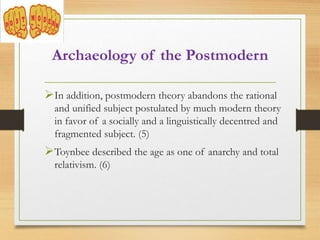
![[For Daniel Bell] The postmodern is age is thus a
product of the application of modernist revolts in
everyday life, the extension and living out of a
rebellious, hyper individualistic, hedonistic lifestyle.
(13)
Postmodern theory appropriates the poststructuralist
critique of modern theory, radicalizes it, and extends
it to new theoretical fields. (26)
Archaeology of the Postmodern](https://image.slidesharecdn.com/postmoderntheorycriticalinterrogationsbynadiasaeed-220220152745/85/Post-modern-theory-critical-interrogations-by-Nadia-Saeed-18-320.jpg)
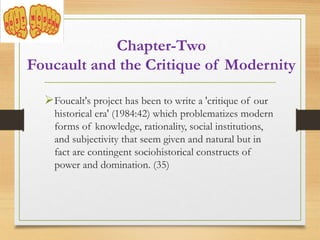
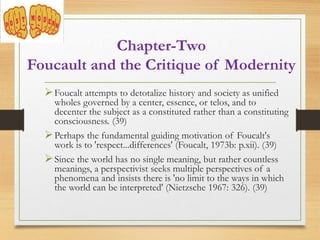
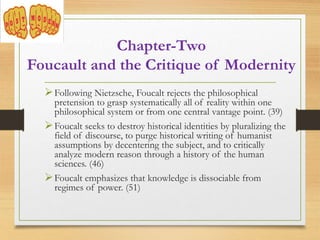
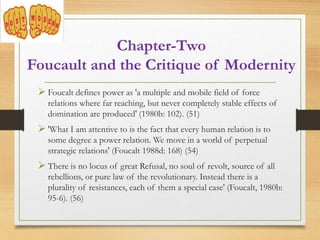
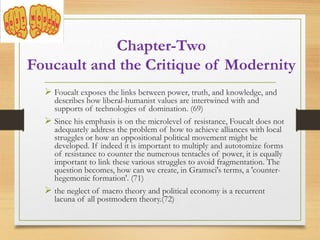
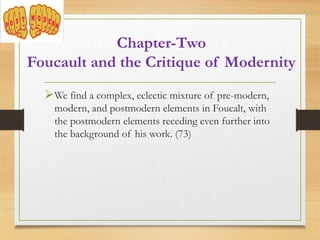
![Chapter-Three
Deleuze and Guattari:
Schizos, Nomads, Rhizomes
Deleuze and Guattari expressed metaphysical relationship between identity and
difference. Traditionally, difference is seen as derivative from identity: e.g., to say that
"X is different from Y" assumes some X and Y with at least relatively stable identities
(as in Plato's forms). To the contrary, Deleuze claims that all identities are effects of
difference. Identities are neither logically nor metaphysically prior to difference,
Deleuze argues, "given that there exist differences of nature between things of the
same genus."[43] That is, not only are no two things ever the same, the categories we
use to identify individuals in the first place derive from differences. Apparent identities
such as "X" are composed of endless series of differences, where "X" = "the
difference between x and x'", and "x'" = "the difference between...", and so forth.
Difference, in other words, goes all the way down. To confront reality honestly,
Deleuze argues, we must grasp beings exactly as they are, and concepts of identity
(forms, categories, resemblances, unities of apperception, predicates, etc.) fail to attain
what he calls "difference in itself."](https://image.slidesharecdn.com/postmoderntheorycriticalinterrogationsbynadiasaeed-220220152745/85/Post-modern-theory-critical-interrogations-by-Nadia-Saeed-25-320.jpg)
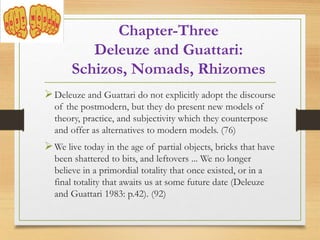
![ their [Deleuze and Guattari] central concern is with
modernity as an unparalleled historical stage of
domination based on the proliferation of
normalizing discourses and institutions that pervade
all aspects of social existence and everyday life. (77)
There is no being beyond becoming, nothing beyond
multiplicity, neither multiplicity nor becoming are
appearances or illusion. (Deleuze 1983: 23-4). (79)
Chapter-Three
Deleuze and Guattari:
Schizos, Nomads, Rhizomes](https://image.slidesharecdn.com/postmoderntheorycriticalinterrogationsbynadiasaeed-220220152745/85/Post-modern-theory-critical-interrogations-by-Nadia-Saeed-27-320.jpg)
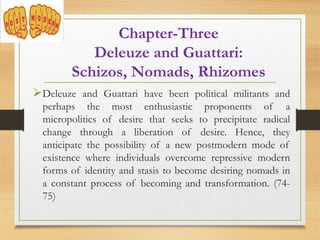
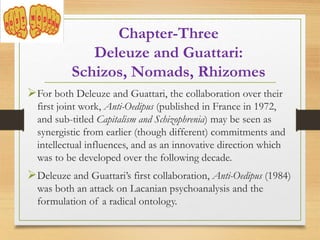
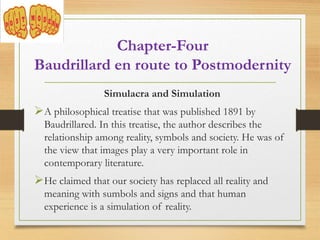
![ For D & G, 'power centers are defined much more by what escapes them or by
their impotence than by their zone of power'. (1987:217) (102)
The macrological struggle against the state and mode of production is
impossible without resisting micrological sites of domination and
normalization, just like micrological struggles against the institutions of control
are ultimately powerless without transforming the larger economic and political
forces that shape them. (105)
[Baudrillard] If modernity is the era of production controlled by the industrial
bourgeoisie, the postmodern era of simulations by contrast is an era of
information and signs governed by models, codes, and cybernetics. (118)
Chapter-Four
Baudrillard en route to Postmodernity](https://image.slidesharecdn.com/postmoderntheorycriticalinterrogationsbynadiasaeed-220220152745/85/Post-modern-theory-critical-interrogations-by-Nadia-Saeed-31-320.jpg)
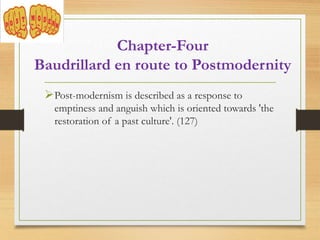
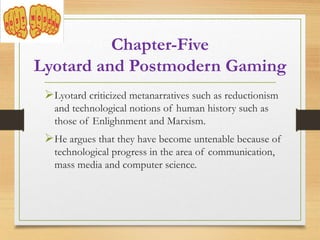
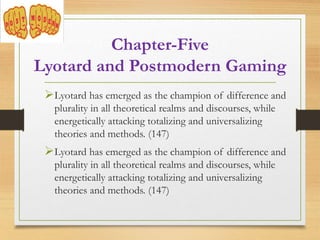
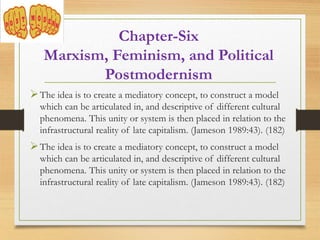
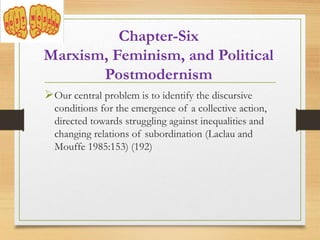
![Chapter-Seven
Critical Theory and Postmodern
Theory
[Lyotard] He calls for a further pluralization and
fragmentation of knowledge and politics on the grounds
that totalities, systems, and consensus produce terrorist
oppression. (223)
Habermas discusses the processes whereby the state and
public bureaucracies come to penetrate both the economic
realm and the private realm. .... The state takes over public
functions such as education, mediating in social conflicts,
and providing social welfare... (235)](https://image.slidesharecdn.com/postmoderntheorycriticalinterrogationsbynadiasaeed-220220152745/85/Post-modern-theory-critical-interrogations-by-Nadia-Saeed-37-320.jpg)
